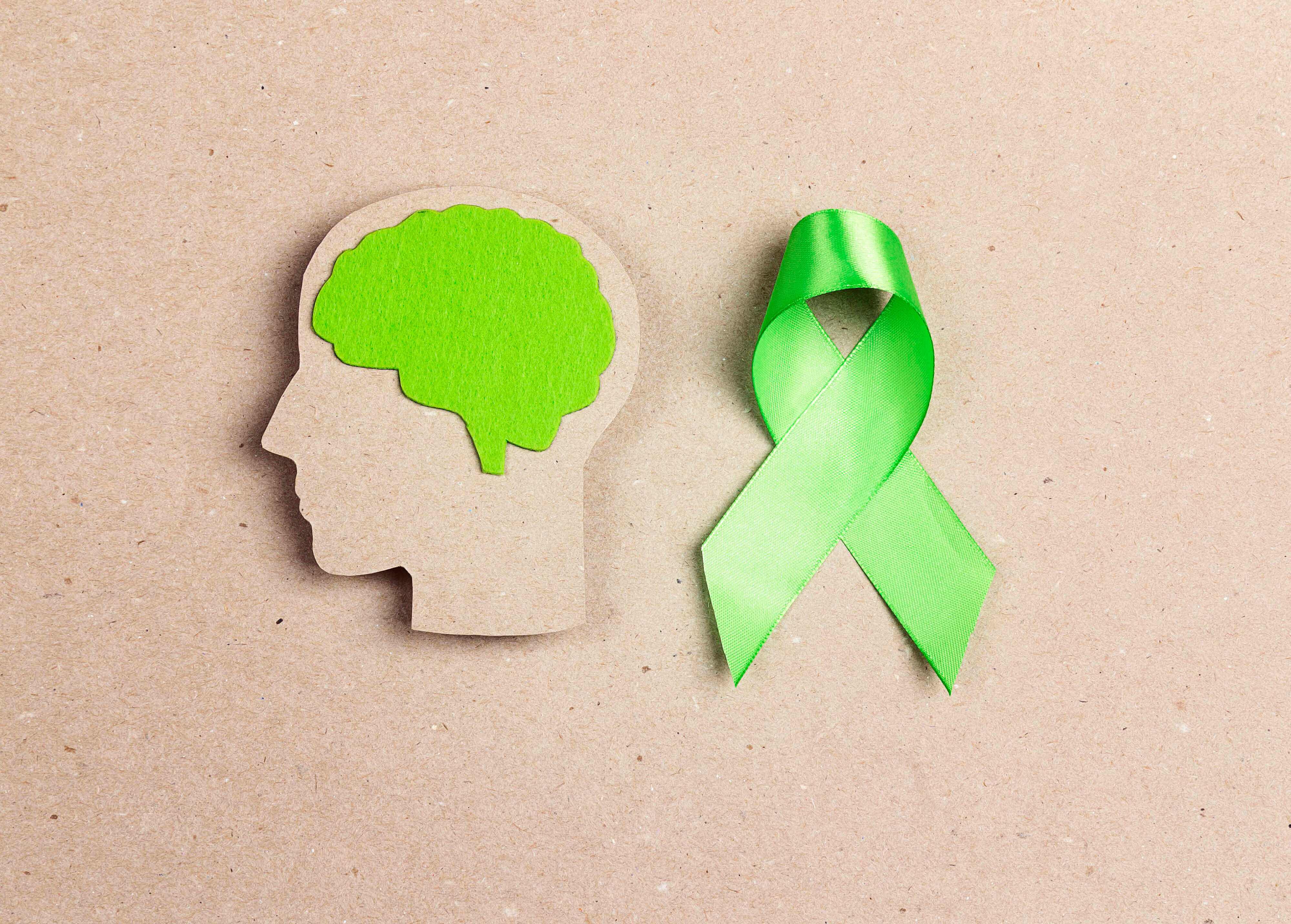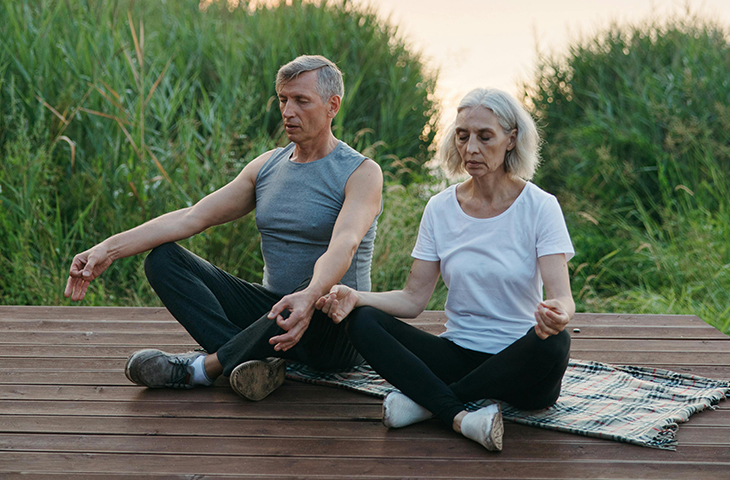37 Pieces Of Advice Doctors Wish People Actually Took
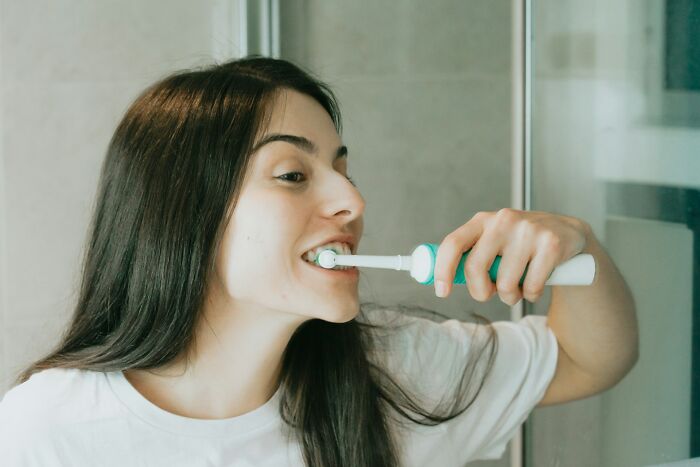
You all have limited time each day to do what you need and want. No matter what, you have to prioritize—unless you’re Superman or The Flash, you won’t get everything done. Naturally, this means that some important responsibilities or fun pastimes may get left by the wayside. But if you don’t find a way to balance this out, you might find yourself seriously struggling further down the line.
For instance, it’s a horrible idea to put your health, diet, fitness, and positive relationships in last place. These should all be your top priorities. Some doctors took to a popular online thread to share their best advice for anyone and everyone hoping to take care of their health. Scroll down for their tips. They’re a great reminder of what to focus on in the new year and all the other years to come.
#1
Oral health is often overlooked, so this is for anyone who uses a manual toothbrush: If you can afford it, buy a cheap electric toothbrush.
Most people aren’t great with their toothbrush technique and an electric toothbrush makes it so much easier for most people to get plaque off. Just 2 minutes each time, twice a day, point the bristles toward the gum line at a 45-degree angle and let the electric toothbrush do its magic!
Image credits: Dentina
#2
Exercise. It’s the biggest difference I see in my patients. 90 year olds that feel and act 65 and 65 year olds who act and feel 90. See it in my office every day. The difference is exercise. You don’t have to do anything crazy. Just do something and be consistent. I will also add that in my opinion the majority of arthritis is genetic programming (not age, weight, sports etc.) and the only thing that slows it down is, you guessed it, exercise. No cure for arthritis and nothing significant on the horizon for it. -Ortho surgeon.
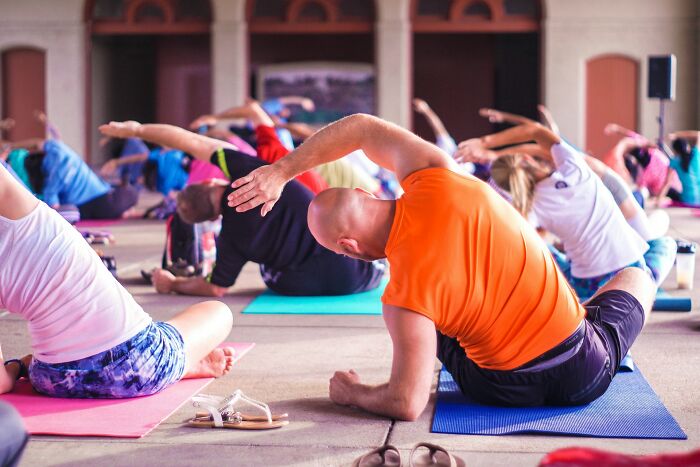
Image credits: Flaky-Wedding2455
#3
Stop drinking alcohol.
Seriously, alcohol is so bad for you in so many f****d up ways.
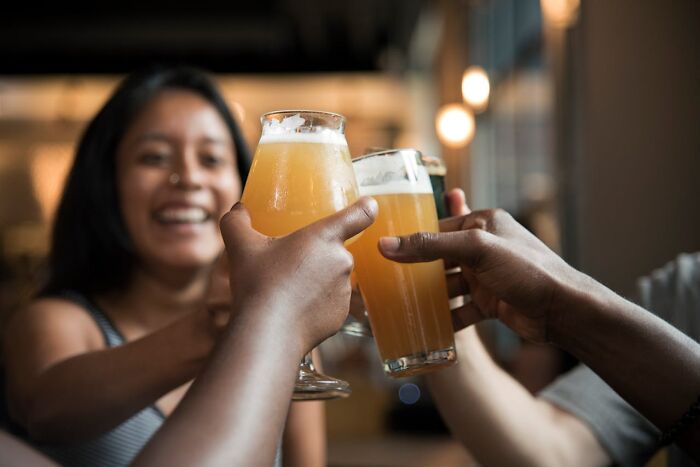
Image credits: ConstableBlimeyChips
Taking care of your physical, mental, and emotional health is a lot of hard work. It requires discipline, dedication, and sacrifice. If it were easy, everyone would be fit, and there wouldn’t be things like the current global obesity epidemic.
The World Health Organization reports that around 1 in 8 people live with obesity. In 2022, 2.5 billion adults were found to be overweight (43% of the global adult population); 890 million of them were obese.
Obesity doesn’t just impact your self-esteem, it also vastly increases the risks of getting serious diseases and conditions ranging from heart disease, stroke, and various cancers to depression. You’re also more likely to develop asthma, reflux, gallstones, liver disease, kidney disease, high blood pressure, and high cholesterol, as well as fertility issues.
Furthermore, being obese wrecks the quality of your daily life because it can lead to chronic exhaustion, back and joint pains, breathlessness, and social isolation.
#4
Not a Doc but a friend of mine is, I sent him this and he replied in all caps "FOR THE LOVE OF GOD PLEASE DON'T HESITATE TO GET SECOND OPINIONS!!!!!".
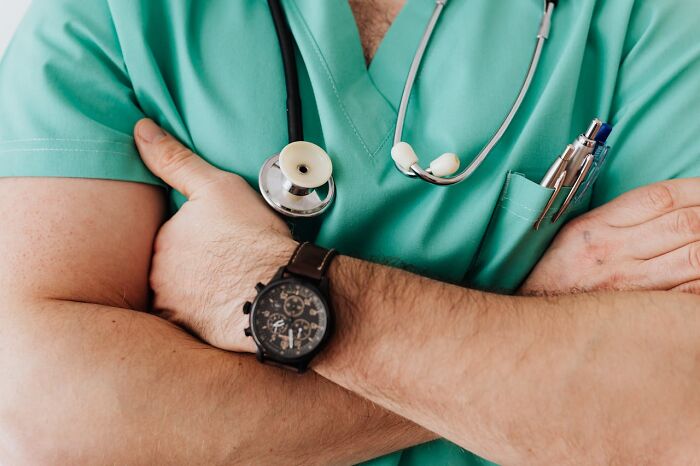
Image credits: tkcool73
#5
Pharmacist: when looking up any health-related info, sites ending in .gov or .edu are the most trustworthy. Some .org are great too, like mayoclinic.

Image credits: wherepigscanfly
#6
Not an MD, but a PhD in psychology/neuroscience. Get enough sleep and do so regularly. You’re setting yourself up for serious cardiac and neurological problems later in life if you are constantly accumulating sleep debt now. If you’re one of those people who thinks they don’t need very much sleep or are too busy to get enough sleep, try getting at least 7-8 hours per night for two straight weeks. You’ll see that you’re more effective in work (less distractible, less error-prone) and emotionally centered in general. If you have anxiety-related issues that keep you from sleeping, start exercising (elevated heart rate and preferably work up a bit of a sweat) at least three times per week.
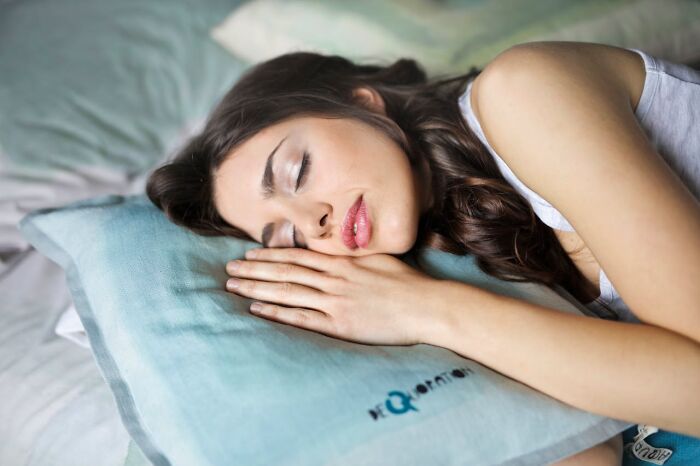
Image credits: TheTrub
With all of this in mind, it’s vital for you to put in daily effort to move more, eat better, sleep properly, and drink plenty of water. The exact guidelines might vary from source to source and might impact you differently due to your genetics, environment, and lifestyle. Nonetheless, you should aim to get at least 150 minutes of moderate-intensity exercise each week, avoid ultra-processed foods, get around 8 hours of uninterrupted sleep each night, and drink 2 to 3 liters of water per day. Again, the exact numbers might look different depending on who you are and what you do, but these are the general guidelines.
But setting your fitness and nutrition aside for a moment, you shouldn’t forget your social life. A decades-long study from Harvard found that it’s your positive relationships that have the biggest impact on your health, happiness, and longevity. In short, when you invest your time and effort into deepening your relationships with awesome people, you bounce back from all the stress that life throws at you much quicker.
Negative relationships, on the other hand, are detrimental to your health. And social isolation is as toxic as being a heavy smoker. So, no matter your fitness level, you should not sideline the people you love. Spending time with them and around them isn’t just enjoyable, it also does amazing things for your overall health.
#7
If you’re having surgery/a procedure, don’t lie to your anesthesiologist. No, we don’t judge but we do need to know.
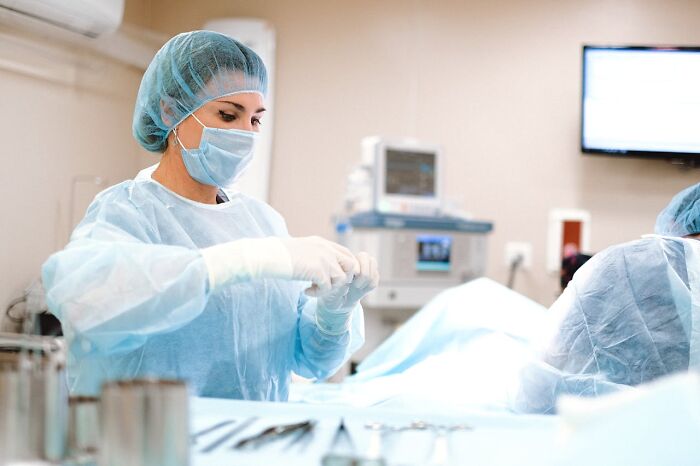
Image credits: sine-theta
#8
Ok not a doctor but if something looks off even if minor don’t wait!
one that I ignored for months because I believed it was normal was my bent spine. The clear divot in my side.
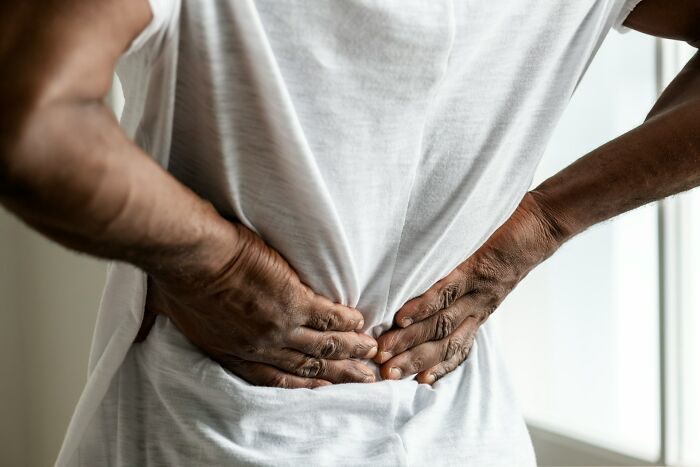
Image credits: AthenaFurry
#9
Not a doctor but I work in a hospital; drink some water, it's easy to get dehydrated without realizing it.

Image credits: SailorVenus23
Before you make any drastic changes in your life—say, at the start of the new year to become a better version of yourself—talk to your doctor. If you’ve been living an unhealthy, sedentary lifestyle for years or decades, you should change your expectations. We all want to look and feel great with minimal effort, but you won’t get results very quickly. Your doctor can give you some tailored advice for how you should approach getting fit. Meanwhile, they’re bound to help you out if you want to move away from unhealthy habits like smoking, drinking alcohol, or excessive caffeine consumption.
Commit to making a handful of small changes, incrementally changing your life over the upcoming weeks, months, and years. What you’re aiming for is sustainable change and a lifestyle you can keep up indefinitely, not burning out and regressing once your initial burst of motivation dries up.
Find some physical activities that you genuinely love doing so that you can maintain the habit even when you’re not feeling 100%. For yours truly, that’s hiking and swimming. For you, it might be soccer, dancing, weightlifting, martial arts, jogging, puppy yoga, or any combination of the hundreds of ways people have found to make moving fun. Whatever you do, getting into the habit of doing it is more important than how intense the exercise is at first. Break a sweat, sure, but don’t go overboard. Just be sure to show up the next time… and the time after that, and the time after that, and… you get the idea.
#10
Sit back and use the backrest in your chair. Your lower back will thank you for it.
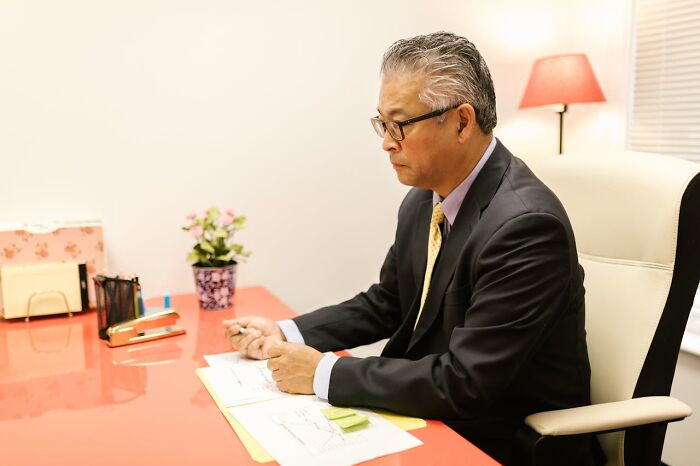
Image credits: sidekickrick
#11
Not a dr! But 10 years of dental assisting…
Please floss your teeth. Between your teeth is the dirtiest part.
Skipping it is basically the equivalent of showering and not washing your b******e.
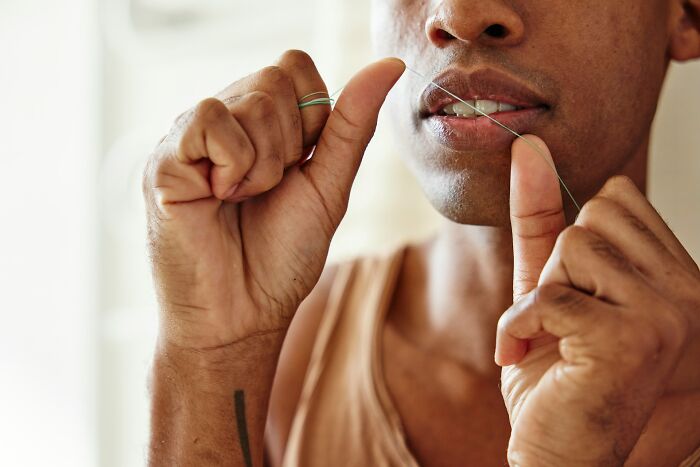
Image credits: PrimalPineapple927
#12
MD here. Be curious.
Why are you are the way you are; how you think the way you think; what you do the way you do it. None of us are given a manual for being, yet understanding our being provides so much more agency in life. If you can afford therapy, great. If not, self help books/audiobooks, CBT apps, online courses and workshops, podcasts and youtube channels, journaling, mindfulness/meditation, and self reflection exercises are all helpful.
All the other things you'll likely read here - exercise, stopping alcohol/cigarettes, eating healthy, better sleep hygiene, wearing sunscreen, oral hygiene - they're behavioral changes made easier when you understand your behaviors/cognitions themselves.
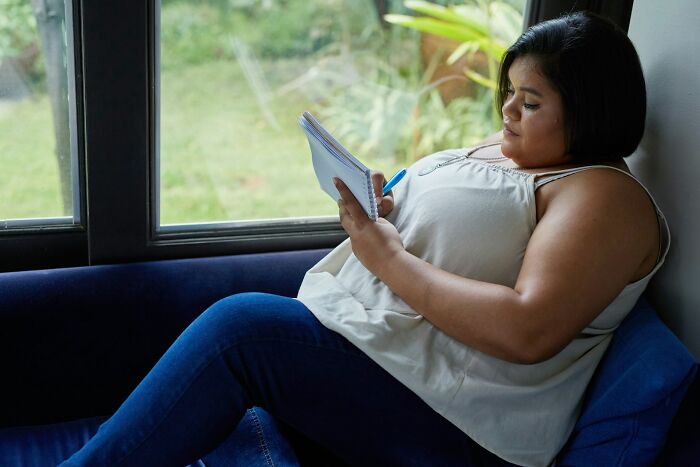
Image credits: jsolex
There are tons of other things you can do to live healthier, but you have to weigh them against all your other responsibilities in life, like work, family stuff, studying, hobbies, etc. You don’t want to live a life where you’re only focusing on maintaining your body because there are so many different things to do and see and try in life. Nor do you want to live in a way where you’re ignoring your body’s needs altogether.
For example, be sure to brush your teeth because neglecting your oral health is going to bite you in the future. But not everyone will have the time and patience for a half-hour-long flossing routine. Floss a bit if you can. Do things imperfectly but regularly.
Unless you’ve got millions in your bank account and an army of top-tier doctors on call, you won’t ‘perfectly’ optimize your health like entrepreneur Bryan Johnson. But so long as you get the main things right, you’re good. Remember: prioritize your relationships, move lots, eat well, sleep well, and enjoy life.
#13
I’m a dentist. Don’t drink pop or suck on candy’s all day long. It’s not a big deal to drink a Mountain Dew at lunch and a bag of skittles after dinner or something. Just finish them quickly and don’t do it between meals. If you threw a skittle in your mouth every ten minutes the whole day you are going to get a bunch of cavities. If you eat a bag of skittles in five minutes right after dinner it will have essentially no effect on how many cavities you get.

Image credits: IDontLikePayingTaxes
#14
Emergency Physician - get comfortable with talking about what we refer to as "goals of care" conversations with your family.
In an instance where a family member can't advocate for themselves, what is important to them when it comes to their quality of life?
I see so many situations every day where I have to ask families about if their elderly loved ones were to have the natural process occur and their heart were to stop, would they want want to have CPR done, for instance, which is very violent, often involves breaking ribs, and requires me to put in breathing tubes and connect people to ventilators. It's much more brutal than TV.
In the face of an emergency situation, when your loved one cannot advocate for themselves, I see so much (understandable) "decision paralysis," because people have to think about things they never have discussed before and saying "no" seems like giving up or not advocating for your family.
I had one case of a 102 year old, completely healthy, who came in one day because her body clearly had decided it was done after a beautiful life filled with love and a large family. This family was shocked, because she was "fine yesterday," and wanted "EVERYTHING" done. I tried to tell them that "everything" may not be worth risk of potential pain, suffering, etc; they were in complete shock and decided anything and everything I could do, I should.
This happens every day, and I never blame a family member. That's your mom, grandma, sister, cousin, best friend, etc. I get it. Ultimately (and thankfully), it is not my job to decide whether or not someone receives "everything;" it is the family. But dear god...if I were that 102 year old...I would come back and slap the s**t out of them.
Talk to your family. Talk to your loved ones. Get your state specific goals of care forms and keep copies available. Let your loved ones dictate their care while they still can.
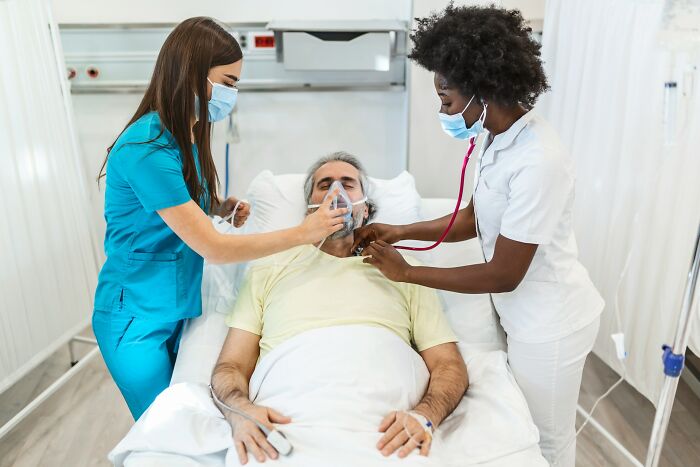
Image credits: brady94
#15
Not a doctor, but a dietitian.
If you need help managing your diet/nutrition needs/anything to do with food - don't ask your doctor. Find a *registered* dietitian (NOT A NUTRITIONIST)..
Doctors usually don't know jack s**t about any of it.. and some of the s**te my patients have told me their doctors have told them make me want to bash my head against a wall.. repeatedly..
Seriously.. so much bad advice..
Oh, and if doctors could stop telling people that all their issues would be solved if they just lost weight.. and refusing to delve any deeper unless they do so - that would be great! The amount of patients I've watched slowly die because of this also makes me want to bash my head against a wall..
Yes, we all know being obese isn't great for your health.. but, there are so many things that can prevent a person from losing weight.. and you're leaving your patients in a really s****y spot by not continuing to investigate while patients try and lose said weight.. PLEASE help your f*****g patients.. don't just tell them they're fat and call it a day..

Image credits: sp0rkify
What is the best health tip that you’d give someone hoping to make a change in 2025, dear Pandas? What health advice would you give your younger self if you could send a message back through time?
What do you struggle with the most when it comes to health and fitness? Do you have any health-related regrets? Let us know! We’d love to hear your thoughts in the comments.
#16
There is no one thing anyone can do for their health as good as quitting smoking. If you don't smoke, then having a healthy diet would be the next biggest thing.
Get regular exercise.
Limit/eliminate alcohol consumption.
If you are diabetic, keep very good control of it.
Keep up with regular check ups and don't hesitate to get something checked out if you are concerned. This is even more critical if you have a family history of cancer.

Image credits: blusteryflatus
#17
Use ear plugs and preserve your hearing for as long as possible. Noise induced hearing loss is the #1 preventable hearing loss. Untreated hearing loss is the #1 modifiable risk factor for cognitive decline and dementia.
Mowing the lawn? Ear plugs. Attending a concert or even a loud bar with live music? Ear plugs. Shooting a gun (yes even just one shot)? Ear plugs.
Ear plugs come in pretty styles and designs these days. Spend a few extra dollars on the musicians ear plugs to maintain good speech understanding.
Ear plugs are cool. Protect your ears!

Image credits: Massive_Pineapple_36
#18
Dermatologist here.
Everybody recommends wearing sunscreen every day, but I honestly don't care about that.
Wear sunscreen when you're going to get a lot of sun. When you're outside all day, going to the beach, going on a road trip, playing tennis, etc. Don't let yourself sunburn.
Don't let perfect be the enemy of good.
If you wear sunscreen during the days where you get the most sun, and you don't let yourself get burned, you should be able to minimize most of your risk of skin cancer.
Sure, wearing sunscreen every day at all times is amazing, especially for reducing photoaging, but just wearing sunscreen during the big times and preventing sunburns is huge for reducing skin cancers.
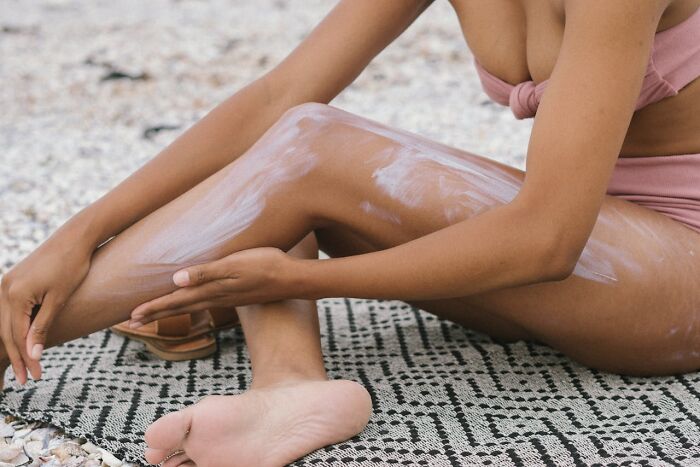
Image credits: PersonalBrowser
#19
Avoid stress! So many conditions/diseases are flared up by it, and the long term effects of constant elevated cortisol levels really takes a toll on the body. Meditation is a great way to do, just sit in a comfortable position, close your eyes, take some deep breaths, and really pay attention to your body. Also doing some light to moderate exercise is the cherry on top. Sincerely, a friendly family med doc.
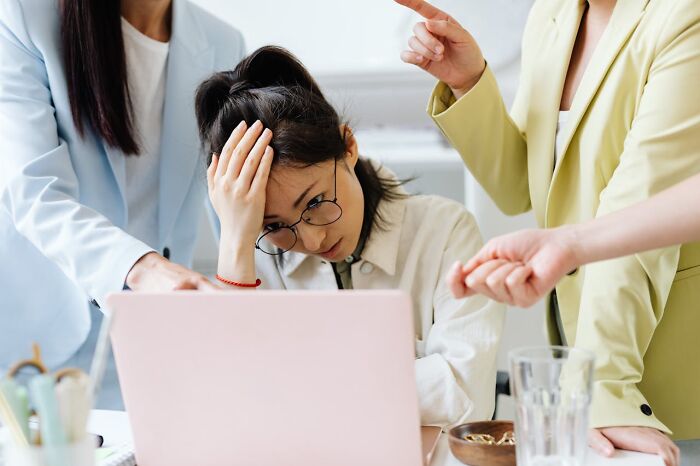
Image credits: salmon4breakfast
#20
Yearly checkups with bloodwork along with regular diagnostics at various ages and risk profiles including colonoscopy, ekg, chest x-ray, prostate check, mammogram, etc. There isn't much that can kill you that pops up out of nowhere. There are usually signs that things are going south years in advance and these risks can be mitigated with early intervention.
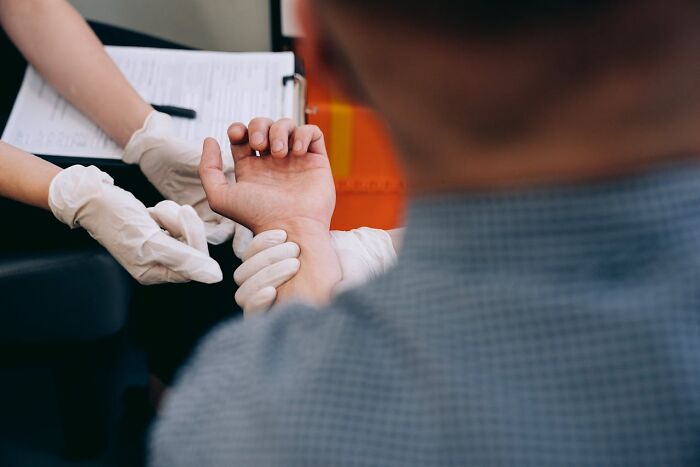
Image credits: lockednchaste
#21
Not a dr, but told to me by a dr: Do not fly without wearing compression socks.
Deep vein thrombosis (DVT) is no joke - if you throw a saddle embolism/clot you'll be dead in minutes.
In fact, if you're going to be sitting anywhere for 3+ hours with limited ability to get up & move around wear compression socks.
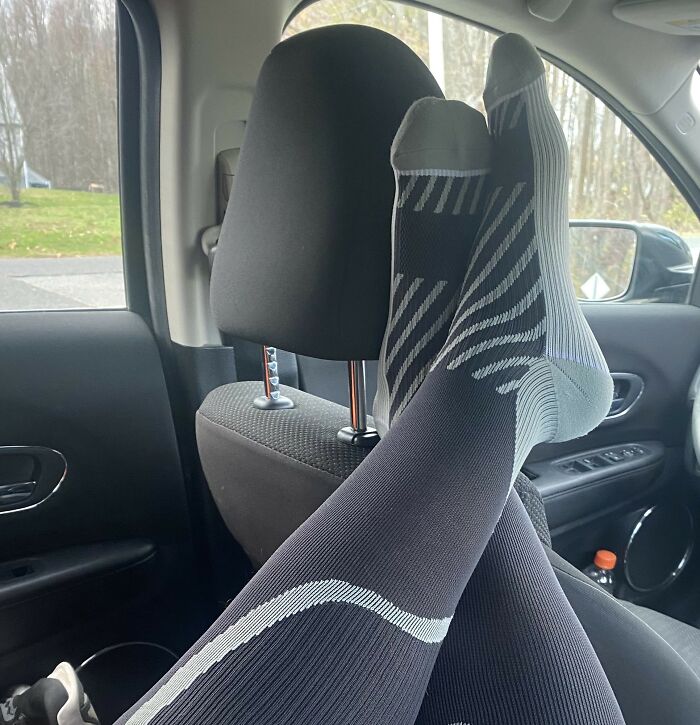
Image credits: qpgmr
#22
Not an MD, a hospice nurse. When we reach our natural destination, the folks surrounding you are all you have left. The Harvard study shows community is very important for healthy longevity. Harvard Study

Image credits: stacey-e-clark
#23
Keep your coins/earrings/batteries/magnets away from children.
Don't buy motorcycles...it's just not worth it.
Don't buy trampolines either.
-MD (Radiologist).

Image credits: KetchupLA
#24
Family medicine doctor here! Please see your primary care doctor! Early detection of hypertension, diabetes, kidney disease, high cholesterol, among others are crucial! The damage these conditions can do to your body are very serious! I have many patients in heart failure, kidney failure or with serious diabetic complications due to these conditions being uncontrolled!

Image credits: purplelaney
#25
Nurse, not doctor, but get your colonoscopy done. It’s unpleasant but colon cancer is worse.
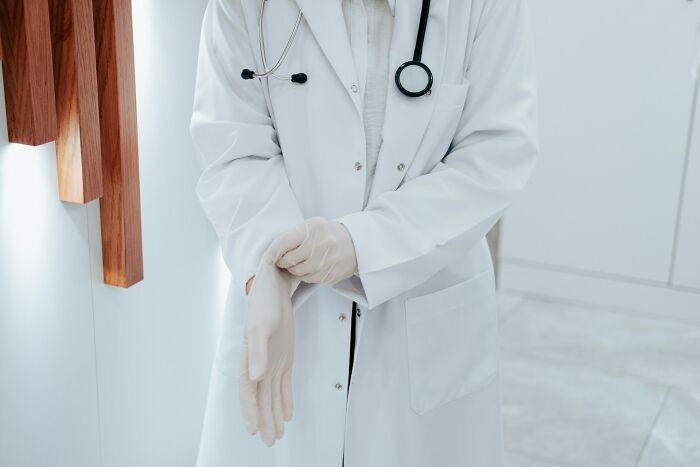
Image credits: daffodil0127
#26
If you snore get tested for sleep apnea, if you have sleep apnea then treat it.
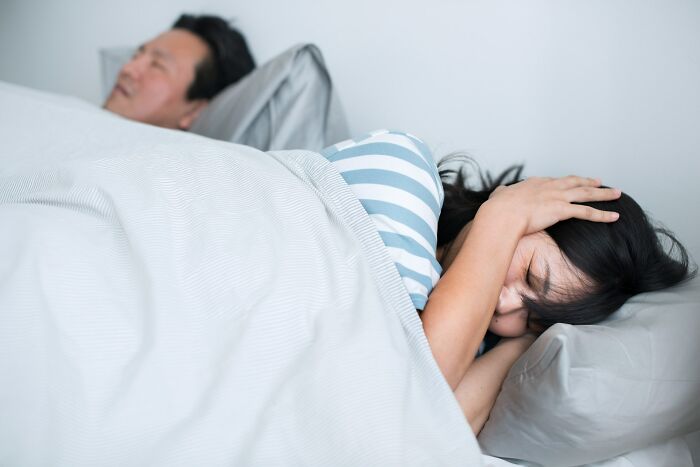
Image credits: Direct_Discipline166
#27
Nurse, but close enough.
If you lose a bunch of weight in a short period of time without trying get your a*s to the a*s doctor.
I've had to cry over terrible cancer tissue samples from young men. Like damn, he's 37 with young kids on stage 4. That one got optimistic 6 months. We sent flowers and doc called his wife and gave some grief options. He knows all the people.
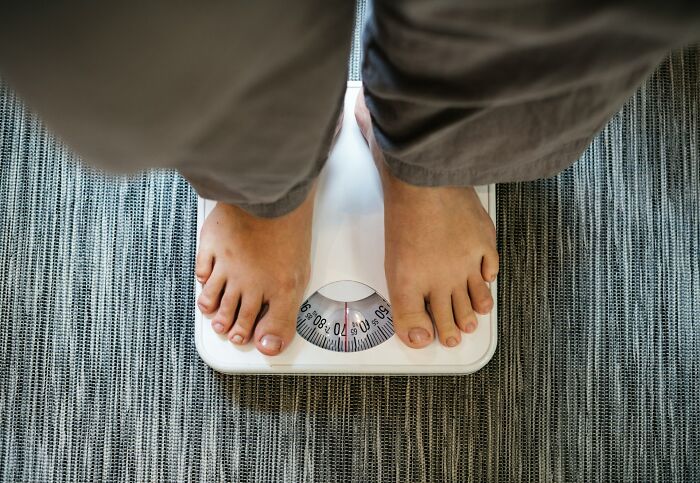
Image credits: hyperfat
#28
Stop eating fast food. It isn't real food and can alter your microbiome permanently if you eat that type of food for too long. It's why 40 year olds are now getting colon cancer at an alarming rate.
#29
Not a doctor: but drink enough water. Skip softdrinks and alcohol whenever you can.
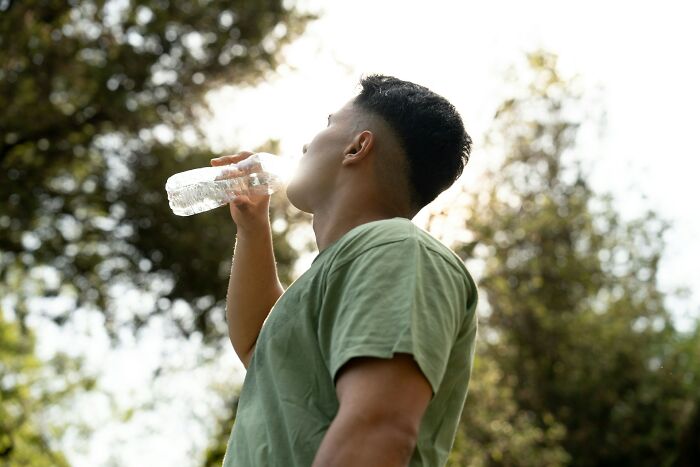
Image credits: Kanulie
#30
Eat food as your medicine now, so you don't have to eat medicine as your food in the future.
#31
Regularly brush your teeth and floss cut sugar get a night guard/teeth aligned.
#32
GP here
Get your vaccines and don’t smoke.
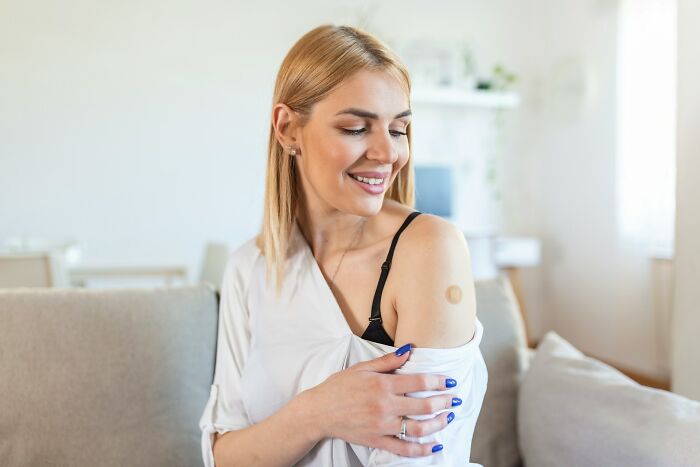
Image credits: Drtct
#33
Cut down on caffeine. Seriously there is a sleep depravation/dysfunction epidemic and the burden on physical and mental health is massive. Caffeine has a 6 hour half life. Yes you may be “sleeping” but normal sleep cycle is still disturbed. Of course exercise, diet, blah blah blah, but for low hanging fruit benefit to effort ratio cutting down on caffeine is probably the easiest thing that would have beneficial impact. Source I’m a pulmonologist, which is the specialty most sleep doctors come from.
#34
MD here. Maintain a (somewhat) healthy weight. Don’t smoke cigarettes or drink a lot of alcohol. My parents never did this and it is always amazing to me how I will see patients who look older than my parents and then realize they are 15 years younger.
#35
Maintain a healthy weight. So many health problems caused by obesity. Plus it makes it harder for us to examine you or do surgery on you.
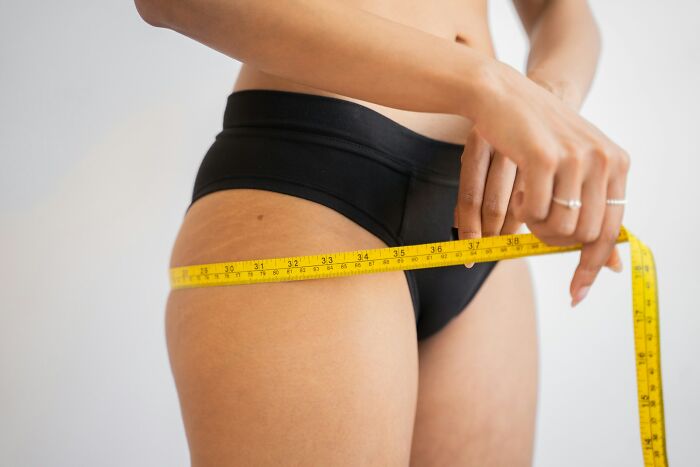
Image credits: pressrewind79
#36
Have a schedule. Go to bed and wake up at the same times or a close as possible each night. Eat a balanced diet. Low carb if possible. Less is more with food. And try to exercise 45 minutes a day. Even if it is walking a few miles.
Those three things will generally fix most issues.
#37
In healthcare as an RN,
So many chronic illnesses we encounter are wholly preventable. Also, most issues are further complicated if the patient is already in poor physical shape. Exercise and eating a balanced diet will stave off so many chronic issues as you age.
One thing that stuck with me was once I had a patient, J.D., who was barely 50. J.D. suffered from hypertension and some diabetes. Was also getting treated for ulcers for legs. J.D. was sedentary and overweight among his many many issues. J.D. lived a life of "just doing whatever"
Compare this to my 55+ y/o Brazilian black belt in my BJJ gym. Of course he's nowhere near how he was in his prime, but good God, he rips us apart when he decides to spar with us somewhat seriously. From a young age he basically lived his life like an athlete and he's reaping the benefits as he aged.
